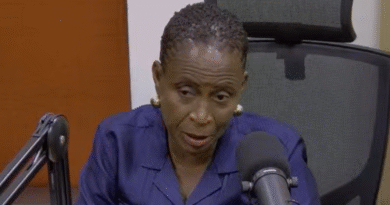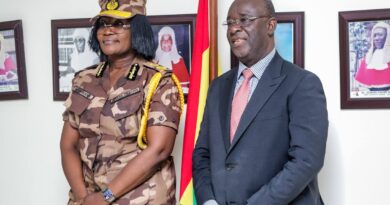Ghana’s Fight Against Human Trafficking Strengthened
Ghana has launched a new training program on ending human trafficking. Thirty-three state attorneys and police prosecutors in Kumasi recently completed the three-day workshop. The International Justice Mission (IJM) organized the essential event. This training deepened legal expertise and strengthened collaboration among law enforcement agencies. The program also reinforced Ghana’s commitment to stopping child trafficking.
The curriculum covered various crucial topics. Participants learned about human trafficking, witness statements, and evidence gathering. They also reviewed cautioned statements and how to lead a witness. Gabriel Acolatsey, an IJM Senior Manager, said the training supports government agencies. Furthermore, he noted that the training was vital due to a rise in human trafficking cases. “One way to reduce this crime’s prevalence is to adequately train law enforcement officers. They must effectively handle such cases,” Mr. Acolatsey stated. He stressed that traffickers often exploit children under false promises of a better life. In reality, these children are frequently abused. Traffickers also violate their rights.
“If we do not make law enforcement officers active and well-equipped to combat this crime, society will face severe consequences,” he warned. He also advised people to be cautious of organizations that recruit them for overseas jobs.
The Chief State Attorney, Ernest Ayeh, spoke at the training’s conclusion. He emphasized the program would deepen participants’ legal knowledge. This would also improve their understanding of human trafficking. A 2024 report showed a rise in victims. For example, law enforcement identified and referred over 944 victims to services last year. Many of these victims worked in labor sectors. They suffered exploitation in fishing, mining, and domestic work. Others endured sexual exploitation. The ban on labor migration has not solved the issue. Instead, it has driven migration underground. This has made migrants more vulnerable.
Ghana has made important strides against trafficking. The country has initiated 109 investigations. Prosecutors have pursued 47 alleged traffickers. The legal system also secured 19 convictions under its anti-trafficking law. Trauma-informed training for officials has improved victim handling. Mr. Ayeh expressed confidence that the skills participants gained will improve professional practice. This knowledge will also help build a more just society. “Fairness, impartiality, and compassion must guide us,” he advised the participants. He also told them their integrity must remain unquestionable. Participants commended IJM for the training. They felt the workshop had given them new skills. These new skills will enhance their professional work and support ending human trafficking in Ghana.




